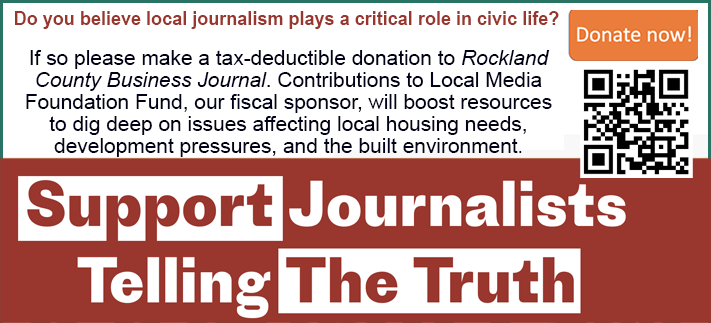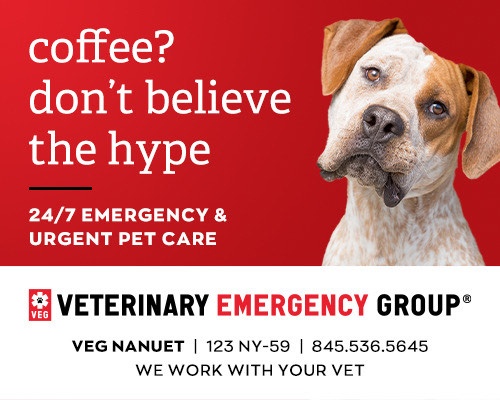|
RCBJ-Audible (Listen For Free)
|
Making History Come Alive at St. Thomas Aquinas College Through Grant from The Robert David Lion Gardiner Foundation
St. Thomas Aquinas College (STAC) has received a $229,624 two-year grant from The Robert David Lion Gardiner Foundation to establish The St. Thomas Aquinas Institute for the Study of Loyalists in the American Revolution.
“We are grateful to The Robert David Lion Gardiner Foundation for this generous grant and entrusting us with this important historic initiative,” said St. Thomas Aquinas College President Ken Daly. “The St. Thomas Aquinas Institute for the Study of Loyalists in the American Revolution will allow our students to gain invaluable hands-on experiential learning alongside distinguished subject matter experts who hold a passion for our country’s history and founding, as well as a belief in the importance to understand political and civic life, while making history come alive for our community to experience.”
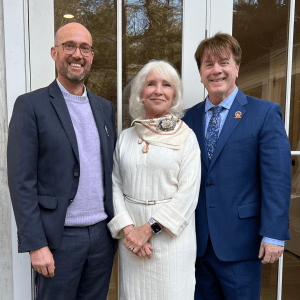 The project, already underway, is expected to take two years, and will be launched ahead of the country’s Semiquincentennial of the Declaration of Independence in July 2026.
The project, already underway, is expected to take two years, and will be launched ahead of the country’s Semiquincentennial of the Declaration of Independence in July 2026.
The Institute will include the work of faculty, students, and external academic partners to develop an online educational resource and digital center with extensive text and images related to the American Revolution. The digital center will include a searchable database containing information on thousands of individual loyalists from across the greater New York City metropolitan area, with a special focus on the Lower Hudson Valley and Long Island.
STAC students will work as dedicated research associates working on the development of the database, visiting historical collections throughout the region, and developing skills in archival research and transcription. Students from the College’s XLAB and Communications Arts will create interactive story maps, data visualizations, and video vignettes. Dean of Arts and Social Sciences Heath Bowen, Ph.D. and external academic partner Christopher F. Minty, Ph.D., FRHistS will head up the program.
“We are pleased to support research of this important yet often overlooked topic on the role New York’s loyalists played in the American Revolution,” said Kathryn Curran, the Executive Director of the Robert David Lion Gardiner Foundation. Many Long Island families and communities have direct links to this aspect of divided loyalty. This project will offer information and understanding of the political, economic and emotional climate of that time.”
Hudson Valley Pattern For Progress Rolls Out Research Agenda for 2024: Studies Include Emergency Housing, Rural Transportation and Re-Use of Malls
Hudson Valley Pattern for Progress, a research group, will study in 2024 the Hudson Valley’s short-term housing crisis, adaptive reuse of large shopping malls, and the shortage of emergency workers. Pattern selects a handful of civic issues to study each year.
The short-term and emergency housing crisis in the Hudson Valley
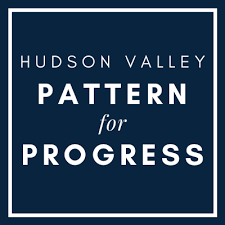 Counties have reported that the number of people living in temporary and emergency housing has increased significantly in recent years, along with the average length of stay. The increasing demand for temporary shelter has forced many counties to send their un-housed residents to live in hotels in neighboring counties, forcing children into long bus rides back to their hometown schools. Pattern will examine the uptick in demand for temporary shelter and underscore practical solutions that might help.
Counties have reported that the number of people living in temporary and emergency housing has increased significantly in recent years, along with the average length of stay. The increasing demand for temporary shelter has forced many counties to send their un-housed residents to live in hotels in neighboring counties, forcing children into long bus rides back to their hometown schools. Pattern will examine the uptick in demand for temporary shelter and underscore practical solutions that might help.
Solar energy and farmland
With solar arrays being installed on more farmland throughout the region, Pattern will explore how these two uses might complement each other rather than competing for the same land. New agrivoltaic technologies are making it possible for farmers to cultivate energy and food at the same time. Pattern will explore the role local governments and policy makers play in encouraging these partnerships.
Adaptive re-use of shopping malls
This project will look at national and international examples that brought new life back to dormant shopping malls and their gigantic parking lots. Every county in the Hudson Valley has a mall that is empty or near empty, and parking lots that are unlikely to ever be filled again. This project will examine how others have revitalized buildings and land to put them back into productive use.
An examination of gaps in rural transportation
Several Pattern studies in 2023 underscored how gaps in rural transportation are making it more difficult for people to access food, healthcare, and other necessities. Approximately 1 in ten people who live in rural areas do not own a car, and public transportation options in these communities are often sparse. Pattern will examine new transportation models that could help people reach their destinations, and how technology might play an expanded role in the efficient and effective provision of rural transportation.
The volunteer crisis facing fire districts and EMS
A deepening shortage of volunteers has affected many of our civic organizations, but this pinch is most prominent in fire districts and emergency medical services. Pattern will analyze the volunteer shortage, services “deserts,” and the long-term challenges connected to the current structure of service delivery for first responders.
“Our independent research and planning projects aim to help civic leaders across the Hudson Valley make evidence-based decisions about our most salient challenges and opportunities,” Pattern CEO Adam Bosch said. “The Pattern team is excited to work this year on projects related to housing, adaptive reuse, transportation, and agriculture – all of which go to the heart of our well-being and the quality of life in communities throughout the region.”
In addition to projects listed above, Pattern plans to produce annual reports including Out of Reach, its annual analysis of housing affordability; and Moving In, Moving Out, its annual analysis the movement of people into and out of the Hudson Valley.
Veolia Helps Improve Student Access to Technology
With Veolia’s assistance, Head Start of Rockland, Inc purchased 63 iPads for pre-kindergarten students in its Haverstraw, Spring Valley and Nyack centers. These iPads give young learners hands-on access to a world of interactive applications built to support and accelerate their individual development.
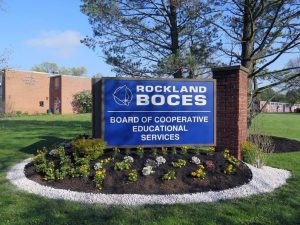 Rockland BOCES’s Hudson Valley P-TECH program acquired new laptops and a 3D printer with Veolia’s recent contribution. This technology provides the tools needed for students to stay on track with the school’s hands-on, project-based engineering curriculum. The program aims to get students interested in pursuing careers in science, technology, engineering and math (STEM). Graduates earn a high school diploma and an associate degree at no cost from Rockland Community College.
Rockland BOCES’s Hudson Valley P-TECH program acquired new laptops and a 3D printer with Veolia’s recent contribution. This technology provides the tools needed for students to stay on track with the school’s hands-on, project-based engineering curriculum. The program aims to get students interested in pursuing careers in science, technology, engineering and math (STEM). Graduates earn a high school diploma and an associate degree at no cost from Rockland Community College.
“Veolia is eager to help students access devices and applications that can accelerate their studies and set them up for academic success,” said Chris Graziano, Veolia’s Vice President and General Manager of New York operations. “We can never lose sight of the fact that today’s students are tomorrow’s workforce.”
Veolia provides water service to 500,000 customers in Rockland, Westchester, Orange and Putnam counties in New York. Its charitable contributions program supports initiatives that strengthen the long-term sustainability of these communities.













